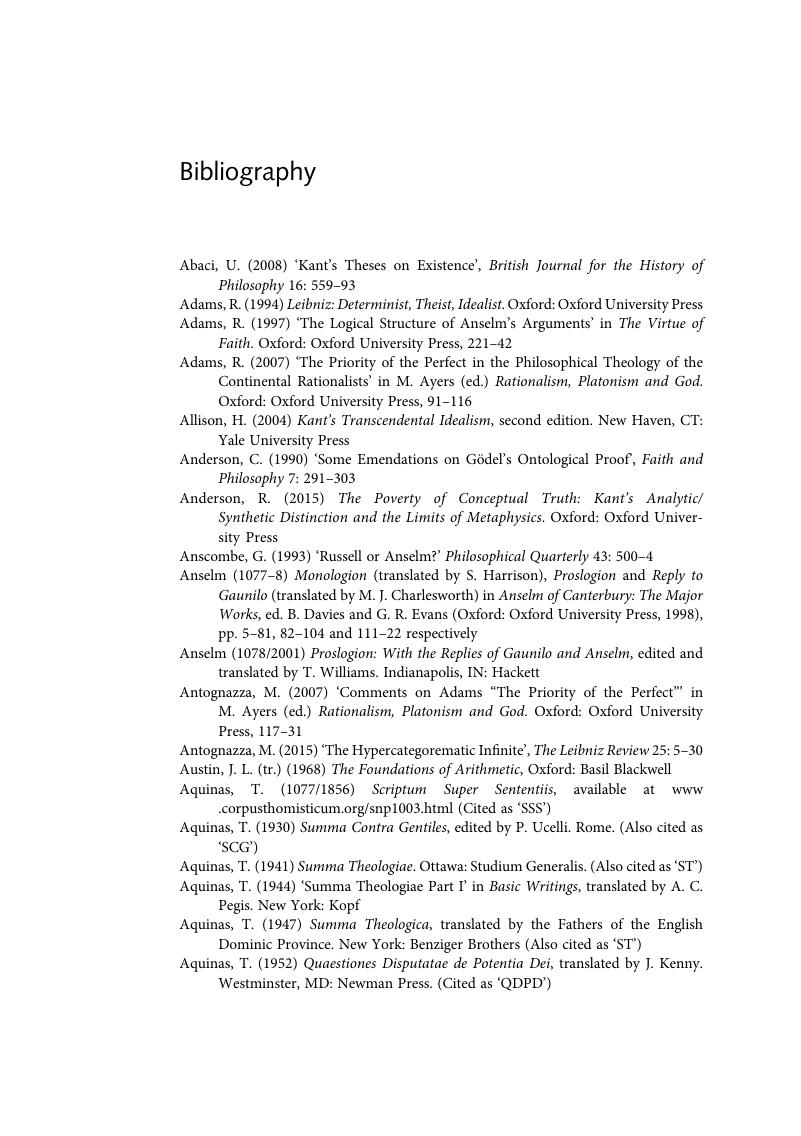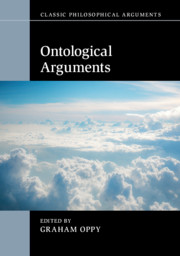Book contents
- Ontological Arguments
- Classic Philosophical Arguments
- Ontological Arguments
- Copyright page
- Contents
- Contributors
- Acknowledgements
- Introduction: Ontological Arguments in Focus
- 1 Anselm
- 2 Aquinas
- 3 Descartes
- 4 Leibniz
- 5 Kant
- 6 Hegel
- 7 Gödel
- 8 Lewis
- 9 Plantinga
- 10 Tichý
- 11 Conceivability and Possibility
- 12 Begging the Question
- 13 Characterisation, Existence and Necessity
- Bibliography
- Index
- References
Bibliography
Published online by Cambridge University Press: 01 November 2018
- Ontological Arguments
- Classic Philosophical Arguments
- Ontological Arguments
- Copyright page
- Contents
- Contributors
- Acknowledgements
- Introduction: Ontological Arguments in Focus
- 1 Anselm
- 2 Aquinas
- 3 Descartes
- 4 Leibniz
- 5 Kant
- 6 Hegel
- 7 Gödel
- 8 Lewis
- 9 Plantinga
- 10 Tichý
- 11 Conceivability and Possibility
- 12 Begging the Question
- 13 Characterisation, Existence and Necessity
- Bibliography
- Index
- References
Summary

- Type
- Chapter
- Information
- Ontological Arguments , pp. 270 - 279Publisher: Cambridge University PressPrint publication year: 2018



